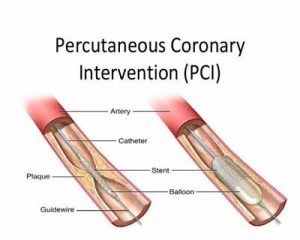- Home
- Editorial
- News
- Practice Guidelines
- Anesthesiology Guidelines
- Cancer Guidelines
- Cardiac Sciences Guidelines
- Critical Care Guidelines
- Dentistry Guidelines
- Dermatology Guidelines
- Diabetes and Endo Guidelines
- Diagnostics Guidelines
- ENT Guidelines
- Featured Practice Guidelines
- Gastroenterology Guidelines
- Geriatrics Guidelines
- Medicine Guidelines
- Nephrology Guidelines
- Neurosciences Guidelines
- Obs and Gynae Guidelines
- Ophthalmology Guidelines
- Orthopaedics Guidelines
- Paediatrics Guidelines
- Psychiatry Guidelines
- Pulmonology Guidelines
- Radiology Guidelines
- Surgery Guidelines
- Urology Guidelines
Does Robotically Assisted PCI in Complex Cases work? Study finds out

Orlando : A first-of-its kind study using robotic technology to remotely control coronary guidewires and stents reported on the feasibility of performing percutaneous coronary intervention (PCI) on patients with complex coronary lesions. Similar clinical outcomes compared to the PCI procedure performed manually were reported. Results of the 18-month complex robotically assisted percutaneous coronary intervention (CORA-PCI) trial were presented today as a late-breaking clinical trial at the Society for Cardiovascular Angiography and Interventions (SCAI) 2016 Scientific Sessions in Orlando, Fla.
The technology of performing robotically assisted PCI is relatively new and was recently approved by the FDA. Previous studies were performed largely on patients with simple coronary lesions. "For the first time, we've shown nearly identical outcomes with a group of very complex patients," said Ehtisham Mahmud, MD, FACC, FSCAI, the study's lead author and division chief, cardiovascular medicine and director, interventional cardiology and cardiac cath lab at the University of California, San Diego School of Medicine. He noted that approximately 80 percent of lesions treated in the CORA-PCI trial were complex, which is more reflective of contemporary interventional cardiology practice.
Consecutive robotic and manual procedures were performed by a single operator and a total of 334 PCI procedures were analyzed (108 R, 157 lesions; 226 M, 336 lesions) in 315 patients (age 67.7 ± 11.8). The majority of patients (78 percent) were male. Clinical success was similar between the groups (99.1 percent for robotic PCI vs. 99.6 percent for manual PCI, p=0.64).
In the robotically assisted PCI group, over 90 percent of the procedures were performed entirely robotically or with minimal manual assistance. Procedure time was longer (robotic PCI 44:30 ± 26:04 min vs. manual PCI 36:34 ± 23:03 min, p=0.005) and remained significant after accounting for Syntax score, primary lesion length, and complexity (p=0.026); however, the longer procedure time was limited to the low complexity lesions. Propensity matched analysis (n=94 each group) confirmed the longer procedure time in the R-PCI group with comparable clinical success (98.9 percent vs. 100 percent, p=1.0). No increase in resource utilization or patient radiation exposure was reported with robotic PCI.
Furthermore, according to Dr. Mahmud, the data presented show that using robotic technology to perform PCI is a viable alternative to manual PCI with the potential benefits of reducing radiation exposure and orthopedic injuries to the interventional cardiologist.
Dr. Mahmud reports the following disclosures: Corindus, consulting and clinical trial support. No support received for this study.
Dr. Mahmud presented "Demonstration of the Safety and Feasibility of Robotically Assisted Percutaneous Coronary Intervention in Complex Coronary Lesions: Results of the Complex Robotically Assisted Percutaneous Coronary Intervention (CORA-PCI) Trial" on Wednesday.

Disclaimer: This site is primarily intended for healthcare professionals. Any content/information on this website does not replace the advice of medical and/or health professionals and should not be construed as medical/diagnostic advice/endorsement or prescription. Use of this site is subject to our terms of use, privacy policy, advertisement policy. © 2020 Minerva Medical Treatment Pvt Ltd